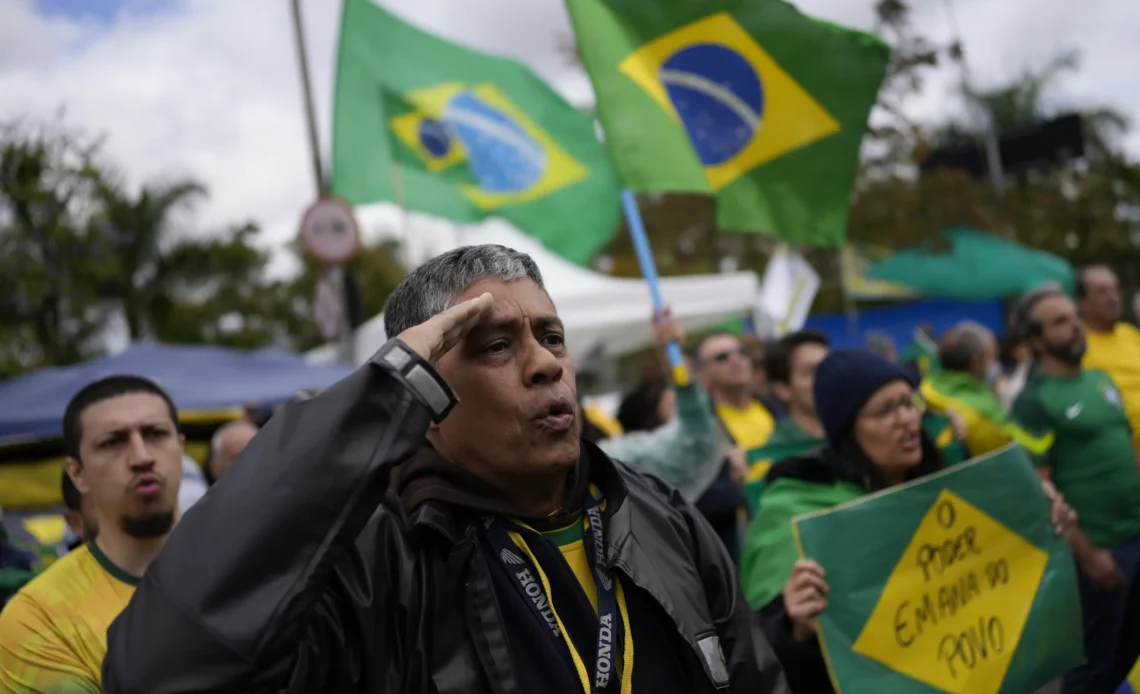RIO DE JANEIRO (AP) — Brazil’s defeated former president, Jair Bolsonaro, was in Florida this month when his supporters tried — but failed — to overthrow the country’s young democracy. It was a sign that many in Latin America’s largest nation believe so fiercely in his movement that it can persist without its namesake.
Although Bolsonarismo appears disoriented at the moment, the broader trend will endure. That’s according to academics who study the movement and participants in the trend themselves, from the far-right radicals who stormed the capital to more ordinary Brazilian social conservatives. Many feel that leftist Luiz Inácio Lula da Silva was such a threat to their country that his victory required the military to prevent him from taking office.
Daniel Bressan, 35, traveled 300 miles from the interior of Parana state to join protesters in the capital, Brasilia. He was taken into custody on Jan. 9, the morning after he and thousands of others invaded Congress, the Supreme Court and the presidential palace.
“Bolsonaro brought the spirit of patriotism and family values back to the people, and now we have to unite to keep fighting,” Bressan, who denies vandalizing the buildings, said by phone on Jan. 10 from inside the federal police’s temporary holding center. “From Bolsonaro himself, we don’t expect anything.”
On the campaign trail in 2018, Bolsonaro tapped into outrage sparked by a sprawling corruption investigation into public figures. The seven-term lawmaker cast himself as an outsider to segments of society that felt undeservedly sidelined.
Some quietly shared his taboo nostalgia for the military dictatorship. Bolsonaro, a former army captain, has supported torture and said the regime should have killed even more communists than it did. Other hardcore supporters were drawn to his exaltation of conservative values, his full-throated embrace of Christianity and his push to arm the general public. Bolsonaro became the “symbolic glue” holding these groups together, according to anthropologist Isabela Kalil, coordinator of the Extreme Right Observatory.
“It’s more about how supporters mobilize the image of Bolsonaro than about his actions themselves,” said Kalil. “Those images are independent from the figure of Bolsonaro. He controls them partially, but not totally.”
Radicalism deepened at the encampments that mushroomed outside military buildings nationwide after Bolsonaro’s loss, with die-hard backers…

